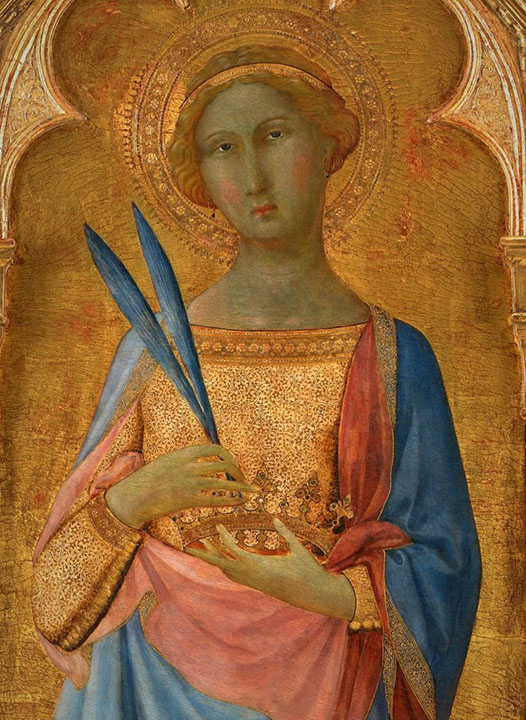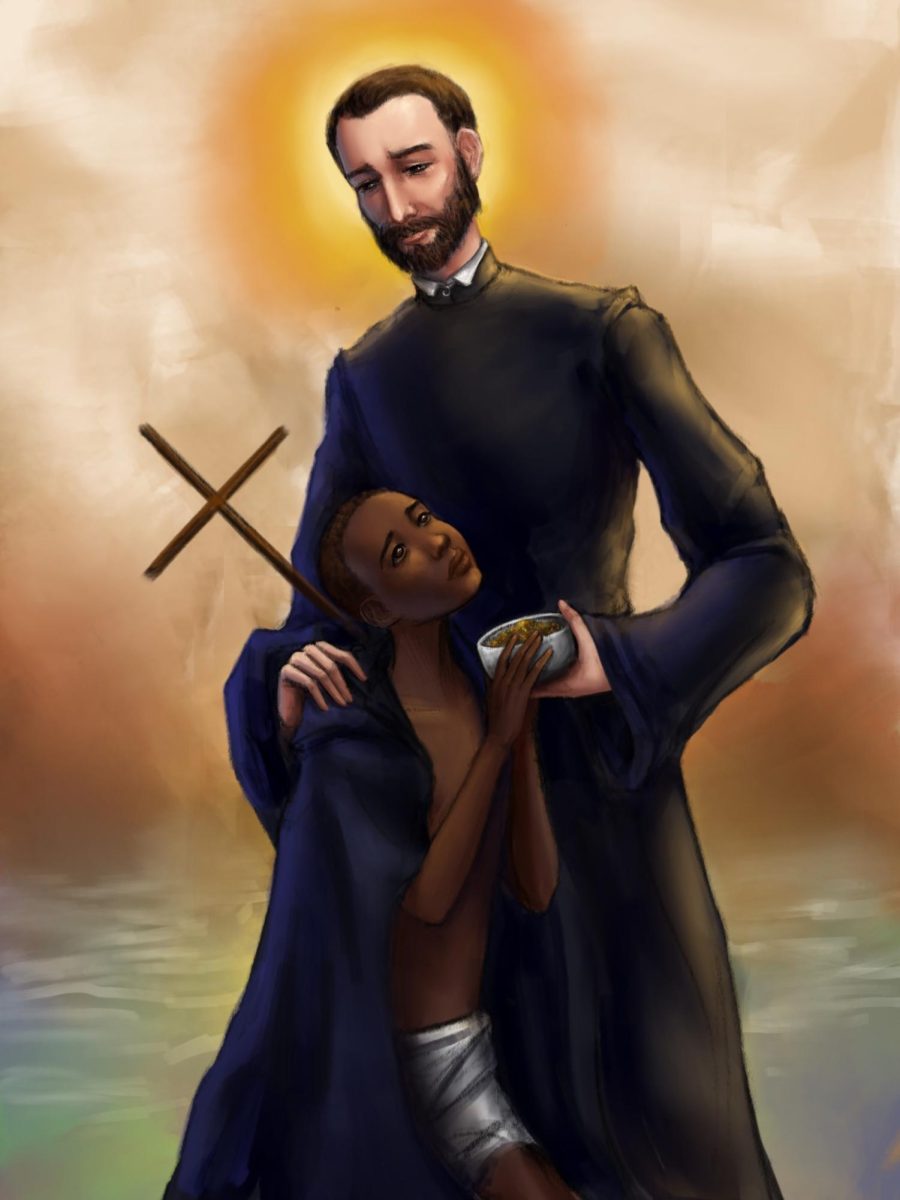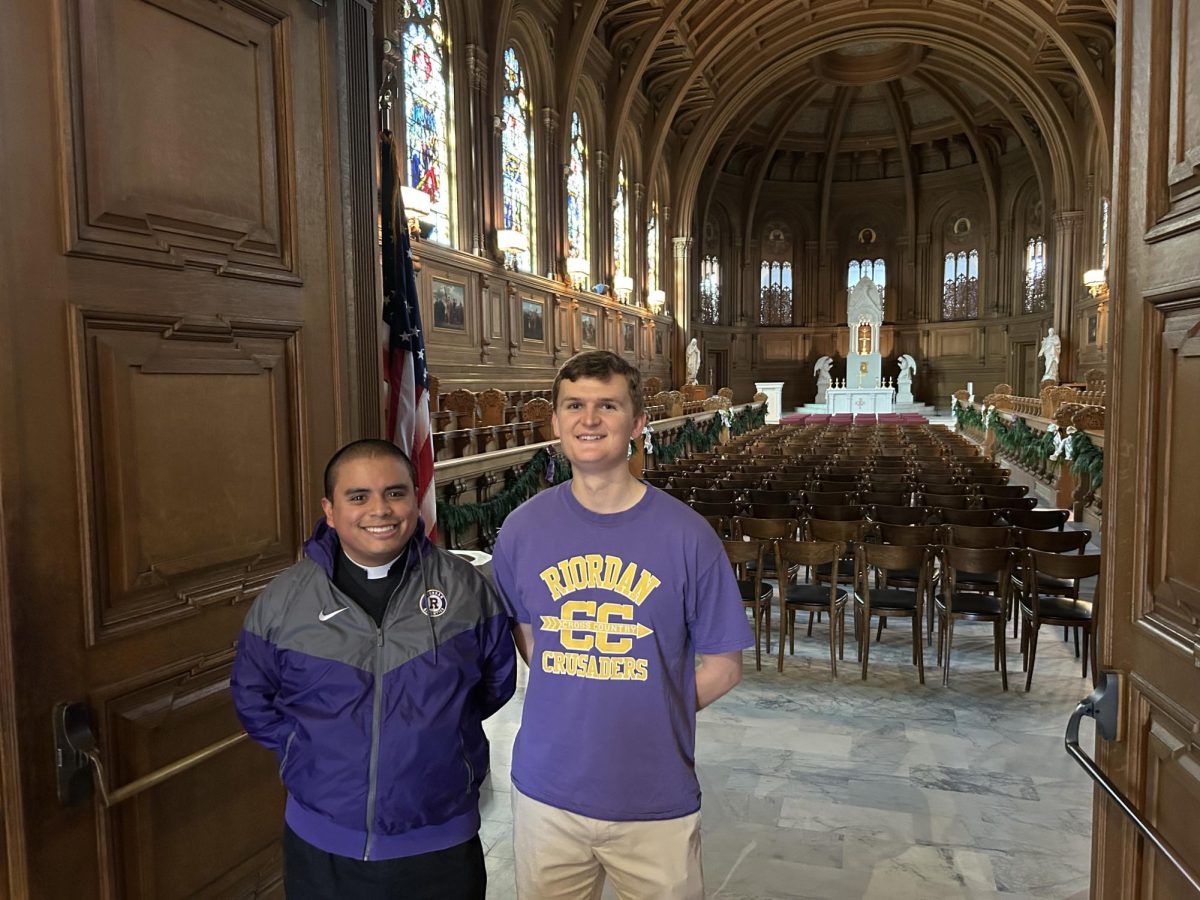With the world in the wake of the Coronavirus pandemic, many faithful Christians are ironically calling upon Saint Corona as the patron saint of resisting epidemics to aid them in this crisis, leading many more to wonder if the particular naming is a great coincidence or a consequence of the modern plague of misinformation.
Saint Corona is an obscure figure in the Church; she was an early Christian martyr who lived in the Second Century Roman Empire. Most of her life is unknown, and the gruesome account of her martyrdom is speculated to be legend. She is often grouped with Saint Victor, another martyr whom Corona came to defend.
According to Catholic.org and the Greek Orthodox Archdiocese of America, Victor was a Roman soldier who lived circa 170-180 C.E. Most sources agree that he served in Damascus of Roman Syria. Upon the other soldiers discovering his faith in Christianity, he was tortured severely. Despite the variation of the legend, both sources state that his eyes were gouged out.
It was during his torment when a wife of either Victor or another soldier, named Corona in Latin or Stephanie in Greek, came to his aid. Her name means “crown” in both languages, similar to the reference to the “crowns” on the Coronavirus or the Corona of the Sun.
After defending Victor and professing her own faith, she too was punished. Corona was tied to two palm trees bent to the ground, and when the palm trees were released, she was torn in half. Victor was later beheaded.
The Aachen Cathedral in Germany resurfaced the saint’s relics to guard against the royal upheaval caused by the viral menace. However, when it comes to being the patron saint of pandemics, many other saints have long traditionally held the patronage that Saint Corona has been crowned with today.
Alex Datoc ’87, Director of Campus Ministry explains that saints obtain their patronage from their association with certain events, locations, or entities.
“In short, a patron saint is determined by their occupation, talent, gifts or event that occured in their life. For example, Mother Teresa, now St. Teresa of Calcutta, is the patron saint of the Archdiocese of Calcutta, where she had her ministry with the Missionaries of Charity.”
Saint Edmund the Martyr was the crowned king of Suffolk, England in the mid-Ninth Century who was defeated and killed by the Danes. According to the Encyclopaedia of Catholic Devotions and Practices written by Ann Ball in 2003, Saint Edmund the Martyr is celebrated during both containment and coronation, as he is the patron saint of pandemics and of kings.
Accompanying Saint Edmund would be Saint Roch, Saint Aloysius Gonzaga, and many other saints who lived when the Black Death rocked Europe. Catholic San Francisco reports the legendary actions of Saint Roch, the patron saint of the plague and dogs, took against the bubonic plague, curing people in Italy through prayer and having a dog bring him food while he was sick in isolation.
Meanwhile, despite the Aachen Cathedral’s assertions, Saint Corona is given a different classification altogether. “According to the Catholic Church, St. Corona is called the patron saint for treasure hunters to bring treasure,” Datoc asserted. “However, there are regions in Germany that claim that she is the patron saint for infectious diseases.”
It’s safe to say that Saint Corona’s recent surge in popularity is due to her eerie name similarity with the Coronavirus more so than her historical sovereign as patron saint of pandemics, as Datoc argued, “There are over 10,000 saints in the Catholic Church and there are patron saints for almost everything. Imagine trying to know all the saints of the Catholic Church? I will say, St. Corona has come into light recently because she has been on social media because of her name, St. Corona, and the Coronavirus.”
Despite this, the Sophia Institute is already distributing the Saint Corona Prayer Card, calling for the unearthed saint to help us in this time of crisis: “St. Corona, patroness of epidemic victims, pray for us.”












